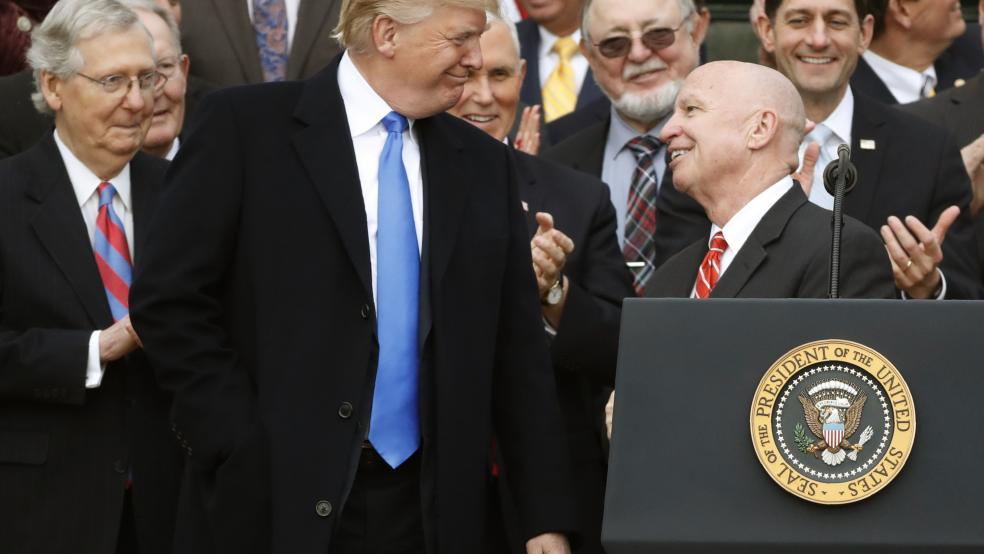The Tax Cuts and Jobs Act signed into law by President Donald Trump in 2017 included a number of temporary and delayed provisions that helped limit the official cost of the package to $1.5 trillion over 10 years, but critics warned from the start that those provisions were mere gimmicks that lawmakers had no intention of extending when the time came.
Now, five years later, Congress is debating one of those provisions, which affects the way corporate research and development costs are treated in the tax code, in what The Washington Post’s Jeff Stein and Yeganeh Torbati call a “first test” of the Republican strategy – and it looks like the critics may have had a point.
At stake is a rule starting this year that requires companies to stretch out their R&D tax credits over five years, rather than taking them all at once. Republicans made this change to produce more revenue for the government (on paper, at least) that was used to reduce the cost of the tax cut package, but the GOP delayed the change until this year — arguably to give lawmakers a chance to undo it before it took effect.
Last week, a bipartisan group of senators voted on a non-binding resolution that calls for the rule to revert to its original setting, eliminating the longer time horizon for the tax credit and saving some major U.S. corporations billions of dollars. Doing so would also increase the cost of the Trump tax package by about $130 billion.
More battles to come: Congress will need to confront similar issues dozens of times in the coming months and years. For example, a deduction for interest expenses is set to shrink, and the treatment of capital investments is scheduled to change — both of which will generate plenty of pushback from those who face higher tax bills. And a lot of money is at stake: If Congress extends all of the “temporary” tax cuts in the TCJA and eliminates all of the scheduled revenue increasers, it could end up adding $4 trillion to the deficit, Stein and Torbati report.
“This fight is a preview of the big show to come,” Marc Goldwein of the Committee for a Responsible Federal Budget told the Post, referring to the R&D tax break. “And it’s a bad omen.”




